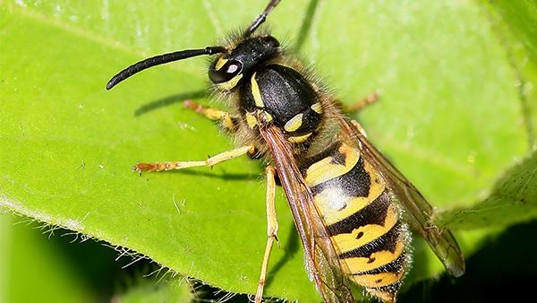Finding a wasp nest on your property is often a frightening experience. It is tough to remove a nest on your own, as you run the risk of upsetting the wasps inside and being stung. Preventing these pests from making a home out of your property should be a top priority. Find out more about wasp nests and why homeowners rely on All-Safe Pest & Termite for professional wasp control in Houston.
How To Tell If It's A Wasp Nest
There are several different types of wasps and stinging insects that create nests as their habitat. Each of them has its own particular style of nest. Because they vary greatly from one another, it's helpful to know their individual characteristics to determine whether or not you have an infestation. Here is a list of the most common wasp types and what their nests look like:
- Paper wasps: These nests have a signature inverted umbrella shape. They are supported by a stalk-like base and are usually open. Paper wasps get their name from the paper-like material used to create their nests. These habitats are known to get quite large.
- Bald-faced hornets: These pests build nests that are roughly the size of a football. This type of stinging insect makes its habitat out of wood fibers that have been chewed and mixed with saliva. Bald-faced hornet nests are typically found at least three feet above the ground.
- Mud daubers: This insect uses mud to create a habitat that consists of several tubes, usually parallel to each other. They prefer to build them within crevasses and cracks. Mud dauber nests look like tiny organ pipes.
- Yellowjackets: Like paper wasp nests, yellowjacket nests also have a paper-like appearance. It's not unusual to discover a yellowjacket nest underground. These habitats can become quite large and house over 100 rows of individual cells.
Proper wasp identification is the first step towards eradicating these pests from your property. Call a professional exterminator right away if you discover a nest in your yard or inside your home.
The Dangers Wasps Can Cause On Your Property
The biggest threat wasps pose to humans is their potential to sting. Males are incapable of stinging, so females are the most dangerous. While they only attack if provoked or if they believe their habitat is in danger, their stings can be extremely painful. A wasp sting could result in a serious allergic reaction in certain individuals.
If you experience a wasp sting, clean the area with soap and water and apply an ointment that contains an antihistamine or hydrocortisone for pain relief. You may also take an over-the-counter pain reliever like ibuprofen or an NSAID. If your pain does not subside or you experience difficulty breathing or excessive swelling, seek immediate medical attention.
What Attracts Wasps To Build A Nest On Your Property
Taking wasp prevention precautions is key in avoiding an infestation. The less attractive your property is for wasps to build their nests, the less likely you'll have to deal with these pests. Here are some of the biggest attractors of wasps:
- Blooming flowers: Although they can make your garden beautiful, wasps are attracted to the scent of blooming flowers.
- Sugar: From desserts to open soda cans, wasps are attracted to anything sugary and sweet.
- Meat: Wasps feed on protein and will hover around places where meat scraps are easily available. Your grill is a prime target.
- Crevices and cracks: Wasps prefer to build their habitats in carved-out places. They'll build their nests in hollowed-out trees and cracks within your home's exterior.
Even the most responsible homeowners can wind up with a wasp infestation. Trying to get rid of wasps by yourself could result in multiple stings and injuries, so it's best to rely on professional pest control services.
Contact All-Safe Pest & Termite For Safe Wasp Nest Removal
The best way to get rid of a wasp nest is to schedule wasp removal services from a professional exterminator. For the best in Houston pest control, contact All-Safe Pest & Termite. Our technicians are trained in the quick removal of wasp nests, so your family and pets stay safe. Give us a call to learn more about our programs.

